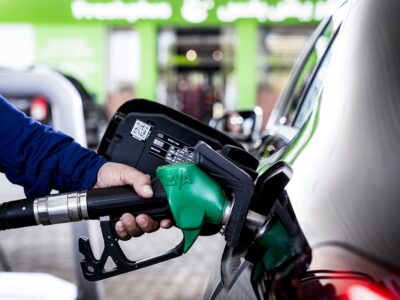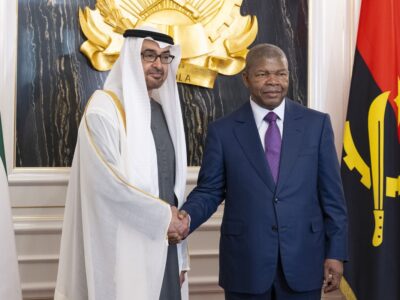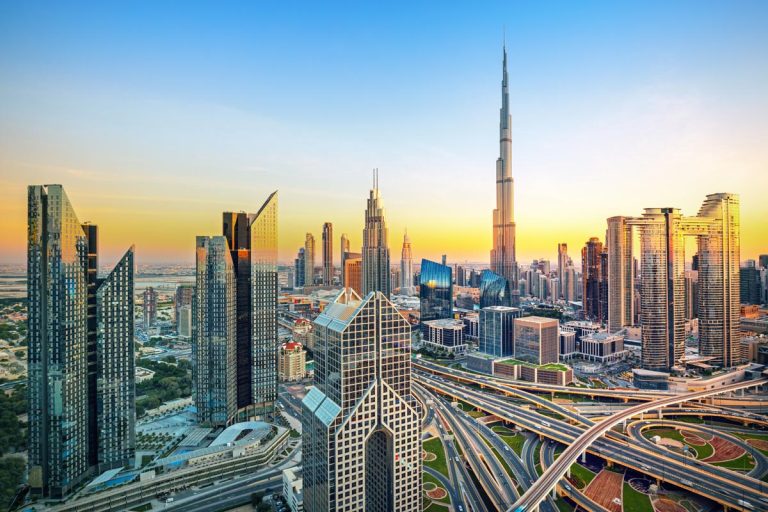The arrest of the Gupta brothers, wanted in South Africa for allegedly masterminding the looting of billions, is part of the UAE’s increasing efforts to tackle money laundering, authorities have stated as they consider extraditing the pair.
Emirati and South African authorities are discussing the extradition of Rajesh and Atul Gupta following their arrest in the UAE, the Dubai police and South Africa’s state prosecutor said on Tuesday. The two men, who are wanted in South Africa on charges of money laundering and fraud, were detained after Interpol in February placed them on its most-wanted list.
The arrests reflect the “continuous efforts” by the UAE to combat money laundering, the Dubai police said in a statement.
Abdullah bin Sultan bin Awad Al Nuaimi, Minister of Justice, said, “The UAE does not rest in preventing international financial crime. The arrest of Rajesh Gupta and Atul Gupta, two individuals wanted by South Africa and pursuant to Interpol’s international Red Notice request, is the latest example of our commitment and sustained efforts to combat illicit finance.
“I am thankful to the UAE authorities who have led this case with expert skill and compiled the requisite evidence to make the arrests possible. The arrests send a clear statement of the UAE’s proactive efforts to work in close collaboration with its international partners and organisations. This is clearly reflected in the response to the Interpol request for Rajesh Gupta and Atul Gupta, as well as the UAE’s extradition and legal assistance agreements with South Africa, which came into force in July 2021.
“The UAE Ministry of Justice, alongside all competent UAE authorities, is determined to prevent financial crime in all its forms to protect the UAE and uphold the integrity of the global financial system as a top national and international priority.”
The UAE has been increasing its efforts to track the money that enters the country. The Financial Action Task Force, a Paris-based organisation set up by G7 countries to combat money laundering, on March 4 put the UAE on its “gray list” of jurisdictions that it wants to do more in this space. The UAE has committed to this and has “significantly strengthened” its anti-financial crime framework. South Africa has meanwhile been warned that it will be included on the list unless it tightens up its controls.
The UAE’s legal processes require a country seeking extradition to provide a legal file containing charges and evidence within 60 days of an arrest, said Habib Al Mulla, a partner at the Dubai-based Baker & McKenzie Habib Al Mulla law firm, who isn’t part of the case. The Public Prosecution would then make a determination as to whether the extradition goes ahead, and the accused could potentially file an appeal, he said.

The arrests are the most significant step yet in South Africa’s efforts to hold to account businessmen and officials accused of corruption during former President Jacob Zuma’s nine-year rule that the government estimates cost the state 500 billion rand ($32 billion). The rand was one of only three emerging-market currencies to gain against the dollar on Tuesday, erasing an early decline to trade 0.3 percent stronger at 15.3593 per dollar by 12:37 p.m. in Johannesburg.
A judicial inquiry into state graft spanning more than three years detailed close links between the Guptas and former President Jacob Zuma, with numerous witnesses alleging they worked hand-in-hand to siphon money out of state transport, power and arms companies and jointly decided who was appointed to the cabinet. The Gupta brothers and Zuma have always denied the allegations.
The arrests come a year after the UAE ratified an extradition treaty with South Africa. President Cyril Ramaphosa’s administration first asked the Emirati authorities to extradite the two brothers in 2018, and the US imposed restrictions ranging from visa bans to asset freezes on them and another brother — Ajay Gupta — in 2019. The UK followed suit last year.





